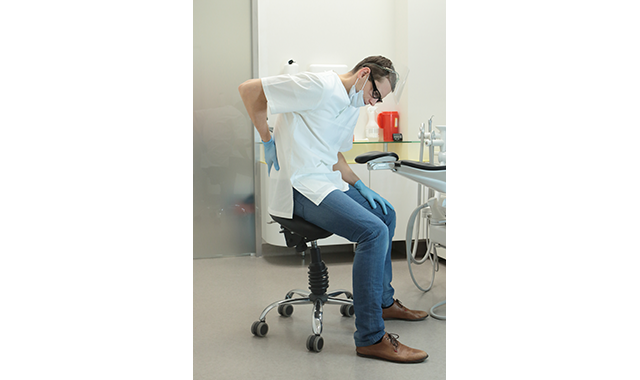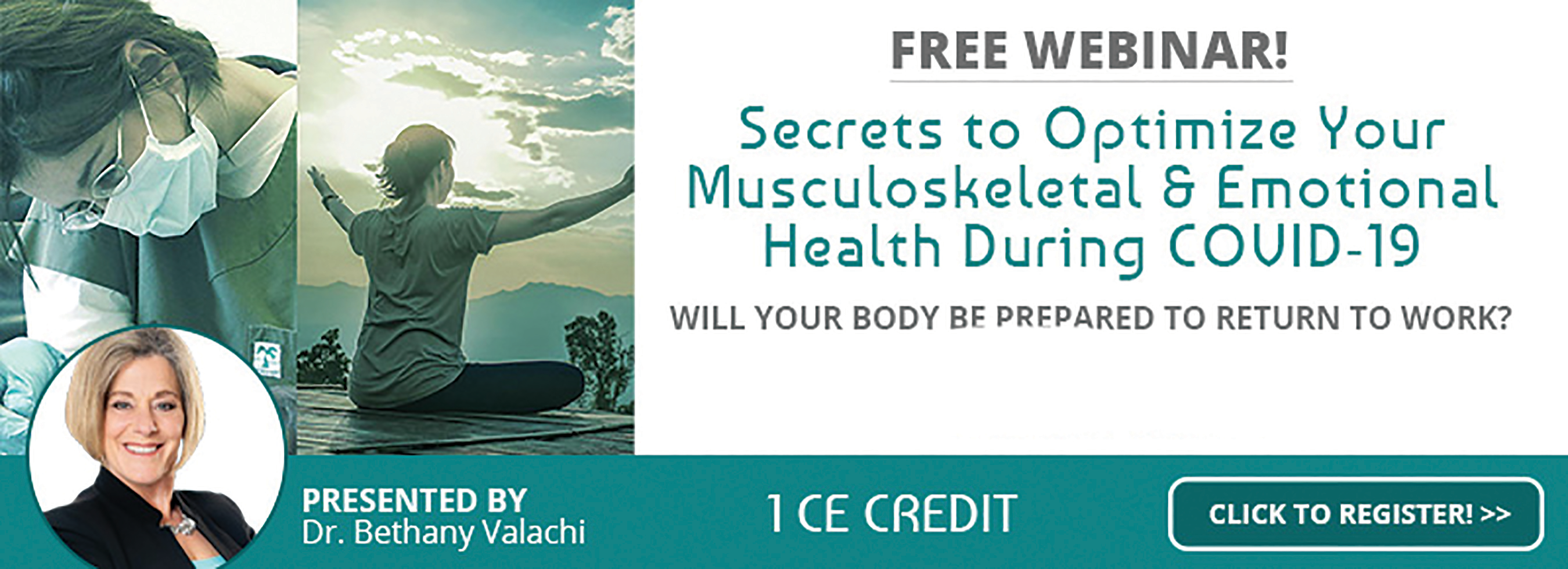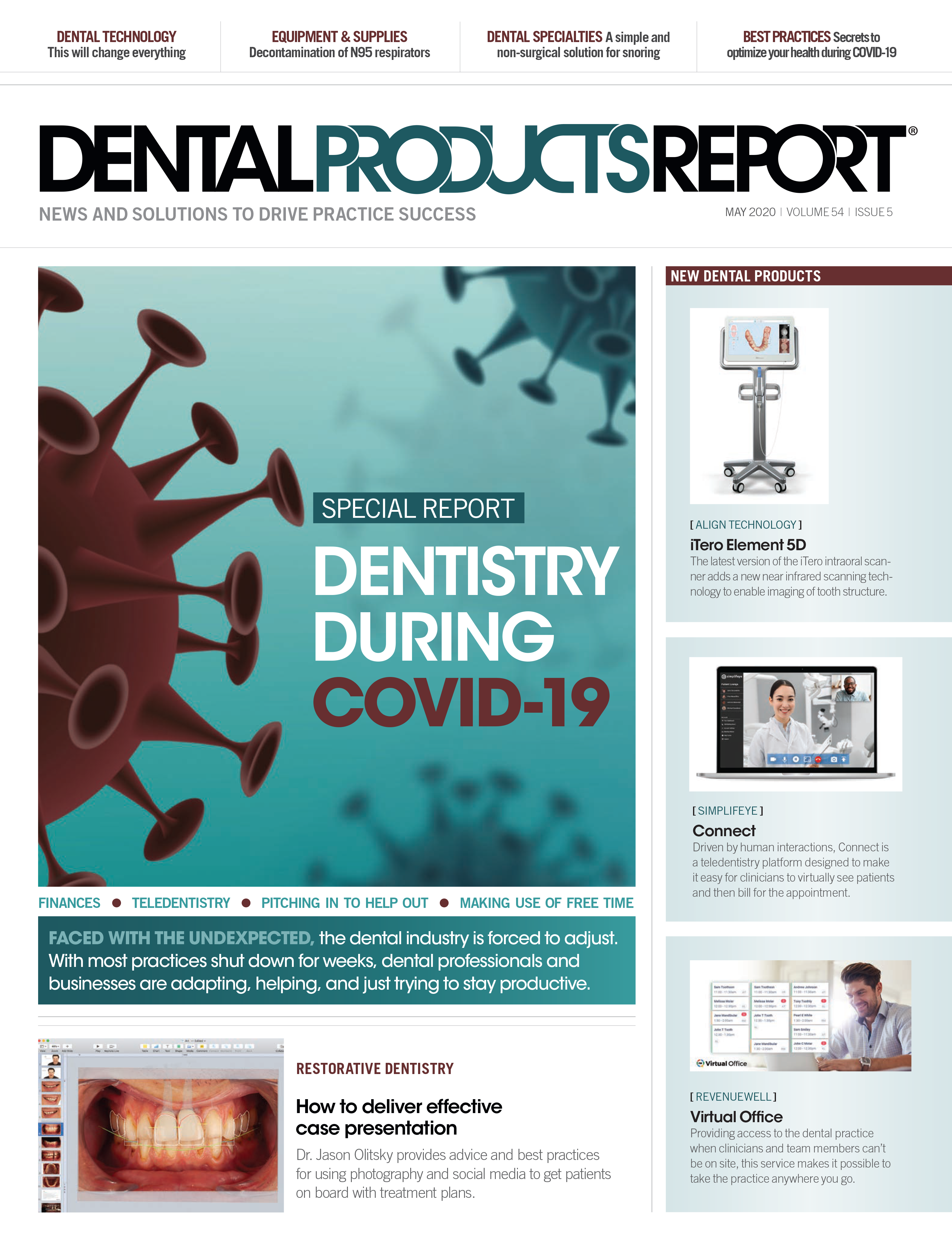Secrets to optimize our health during COVID-19
Whether or not you’re aware of it, this pandemic could be affecting your musculoskeletal and emotional health.

There is no denying that the COVID-19 pandemic brings myriad stressors, many of which can negatively impact your health. Some of these risk factors we have little control over, however there are numerous techniques we can implement to mitigate their damaging effects on our bodies.
The literature is clear that stress tends to ‘live’ in two areas in our bodies-the neck and low back. Interestingly, these are two areas where dentists report the highest incidence of work-related pain. The causal factors being muscle imbalances, trigger points, ischemia, disc degeneration, and stress. Add to this milieu of mechanisms the mental stressors of COVID-19, and the stage is set for a painful return to work.
When we become clear about the stress risk factors that lead to pain, we can more effectively take preventive action.
It hurts to be economically insecure
The COVID pandemic has left many dentists in economic uncertainty. A meta-analysis showed that economic insecurity and lack of control were correlated with physical pain and reduced pain tolerance.1 The study found that economic insecurity predicted increased consumption of over-the counter painkillers. More specifically, where there was a rise in job insecurity and a concurrent rise in economic insecurity, there was a greater likelihood that back pain will actually become disabling. In summary, it was established that the psychological experience of lacking control helped generate the causal link from economic insecurity to physical pain. If we can recognize and short-circuit the downward spiral initiated by economic insecurity, a more positive cycle can be initiated.1
Poor communication leads to pain
Since the shelter at home order, some individuals may find themselves in close quarters with family members with whom communication is challenging. Mounting evidence suggests that chronic interpersonal stressors have a detrimental influence on mental and physical health, and one emerging hypothesis regarding the mechanism of these effects involves the ability of stress to alter physiologic inflammatory processes. Increased family conflict was associated with increased distress and increased pain.
Loneliness hurts
With the COVID pandemic came social distancing measures. Loneliness and lack of social support are also highly correlated with low back pain. Perceived social isolation (loneliness) is a risk factor for morbidity and mortality.
Stress can be a pain in the neck
Studies reveal that the upper trapezius is the muscle that responds the most strongly in the body to mental stress. Incidentally, it is also the muscle that is the most active during the delivery of dental care. About 91 percent of dentists reported that neck pain interfered in their work.2
When the “spigot opens” and social distancing measures are lifted, dentists may experience a deluge of patients in their practice. During this pandemic and the return to work, it will become increasingly important for dentists to integrate evidence-based strategies to down-regulate their sympathetic “fight-or-flight” response to mitigate the physical impact of stress on their bodies.
REFERENCES
- Chou EY, Parmar BL, Galinsky AD. Economic Insecurity Increases Physical Pain. https://journals.sagepub.com/doi/abs/10.1177/0956797615625640. Published February 18, 2016.
- 2015 Dentist Well-Being Survey Report. ada.org. 2015 Dentist Well-Being Survey Report. Published 2015.

